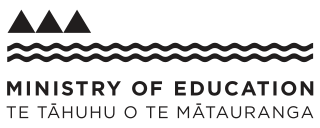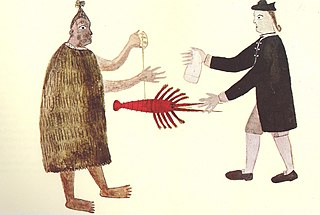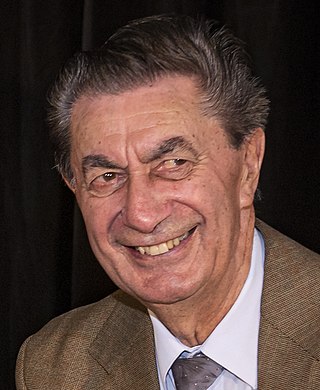
Tawa is the northernmost suburb within the Wellington city boundary, located roughly 15 km north of Wellington's CBD between Churton Park and Porirua in the North Island of New Zealand. It takes its name from the broadleaf tree, which was once prolific throughout the area, although its most famous tree is the Bucket Tree, a large macrocarpa with the topiary of an upside-down bucket. Tawa is also known for its large number of churches, representing a wide range of Christian denominations.

Featherston is a town in the South Wairarapa District, in the Wellington Region of New Zealand's North Island. It is at the eastern foothills of Remutaka Range close to the northern shore of Lake Wairarapa, 63 km (39 mi) north-east of central Wellington and 37 km (23 mi) south-west of Masterton.

Karori is a suburb located at the western edge of the urban area of Wellington, New Zealand, 4 km from the city centre and is one of New Zealand's most populous suburbs, with a population of 15,380 in June 2023.

Miramar is a suburb of Wellington, New Zealand, south-east of the city centre. It is on the Miramar Peninsula, directly east of the isthmus of Rongotai, the site of Wellington International Airport.

The Ministry of Education is the public service department of New Zealand charged with overseeing the New Zealand education system.

Ōtaki is a town in the Kāpiti Coast District of the North Island of New Zealand, situated half way between the capital city Wellington, 70 km (43 mi) to the southwest, and Palmerston North, 70 km (43 mi) to the northeast.

Paraparaumu is a town in the south-western North Island of New Zealand. It lies on the Kāpiti Coast, 55 kilometres (34 mi) north of the nation's capital city, Wellington. It is also known to residents as Pram or Paraparam.

Clarence Edward Beeby, most commonly referred to as C.E. Beeby or simply Beeb, was a New Zealand educationalist and psychologist. He was influential in the development of the education system in New Zealand, first as a director of the New Zealand Council for Educational Research (NZCER) from 1936, and then as Director of Education from 1940, initially under the First Labour Government. He also served as ambassador to France and on the UNESCO executive.

The development of state schooling in New Zealand has been shaped by social, economic and political interactions between Māori as tangata whenua, missionaries, settlers, voluntary organisations and the state of New Zealand which assumed a full legislative role in education in 1852. While the initiatives and systems were driven by colonial ambitions to protect and civilise the indigenous people through assimilation, and install a model of education based on European concepts of the purposes and delivery of learning, Māori actively engaged with the process to retain their traditional knowledge and language by participating in missions schools, contesting many aspects of Native schools and establishing Kura Kaupapa Māori. Arguably to create and reform an education system that aimed to reduce inequalities and enable social mobility, a series of acts of parliament has attempted to resolve differences between competing interests as the country faced social, cultural and economic challenges. In response to criticism of the education system and the role of the state in managing and delivering equitable learning, there were radical reforms in the late 1980s. These changes resulted in the establishment of self-managing schools and a decentralisation of the system, with the Department of Education being replaced by the Ministry of Education whose role has been to implement government reforms. While these systems are under review, they remain in place as of 2023.

Kilbirnie is a suburb of Wellington in New Zealand, 3 kilometres (1.9 mi) to the south-east of the city centre. Travellers can reach Kilbirnie from the Wellington central business district via the Mount Victoria Tunnel and Hataitai, or over Mount Victoria, or around the coast.

Mākara is a locality located at the western edge of Wellington, New Zealand, close to the shore of the Tasman Sea. The suburb is named after the Mākara Stream.

Angus Hikairo Macfarlane is a New Zealand academic and professor at the University of Canterbury.

The suburb of Newtown lies in the southern part of Wellington in New Zealand. It lies east of Vogeltown, between Mount Cook and Berhampore. The main thoroughfares of Newtown are Riddiford St, leading from Mount Cook to Berhampore and Melrose, and Constable St, leading from Newtown to Kilbirnie.

Helen May is a New Zealand education pioneer. She has been an eloquent activist and academic in education, with a strong feminist focus on early childhood education. Her advocacy has been characterised by its focus on the rights and needs of children and teachers, expressed by an active and collaborative engagement with educational institutions, trade unions, the Ministry of Education and other government agencies.
Margaret Ann Carr is a New Zealand education academic. She is currently emeritus professor at the University of Waikato.

Iqbal Manzoor Haque, commonly known as Bali Haque, is a New Zealand educator. His career has included four principalships, advocacy and support in a range of professional associations, serving as deputy chief executive officer of the New Zealand Qualifications Authority (NZQA) and as chair of the Independent Taskforce commissioned by the Sixth Labour Government in 2018 to review Tomorrow's Schools. Haque is a frequent commentator on educational issues and his contributions have been described as "characterised by a scholarly analysis and a socially critical disposition". He has published two books and as of 2023 is a member of the New Plymouth District Council.
William Leslie Renwick was a New Zealand educationalist. He was educated in Northland and Auckland before training as a teacher at Auckland Teachers' Training College. After working as a teacher and gaining a BA from Victoria University of Wellington, he was appointed as a researcher to the Commission on Education. After a number of school inspector positions within the Department of Education, he was appointed Director-General of Education in 1975. Retiring from the department in 1988, he took up a research position at the Stout Research Centre in Wellington. He performed background research on Treaty of Waitangi claims, and wrote an extensive review for the University of Waikato on their handling of complaints against a doctoral student. He had a variety of committee and board roles in New Zealand and overseas, including as a council member of the University of the South Pacific, a member of the OECD Education Committee, chair of the New Zealand National Commission for UNESCO, a member of the governance board for the Commonwealth of Learning, and as a member of the QEII Arts Council and the advisory committee of the historical branch of the Department of Internal Affairs.
Carol Anne Mutch, also known by the nickname Dr Disaster, is a New Zealand academic, and is Professor of Critical Studies in Education at the University of Auckland, specialising in disaster management and recovery in educational settings, and the role of schools during crises.
Sally Peters is a New Zealand academic, and is a full professor at the University of Waikato, specialising in the transition from early childhood education to school, children's learning and development, and transitions at other life stages.
Linda Mary Mitchell is a New Zealand academic, and is a full professor at the University of Waikato, specialising in early childhood education, education policy, and education internationally.















